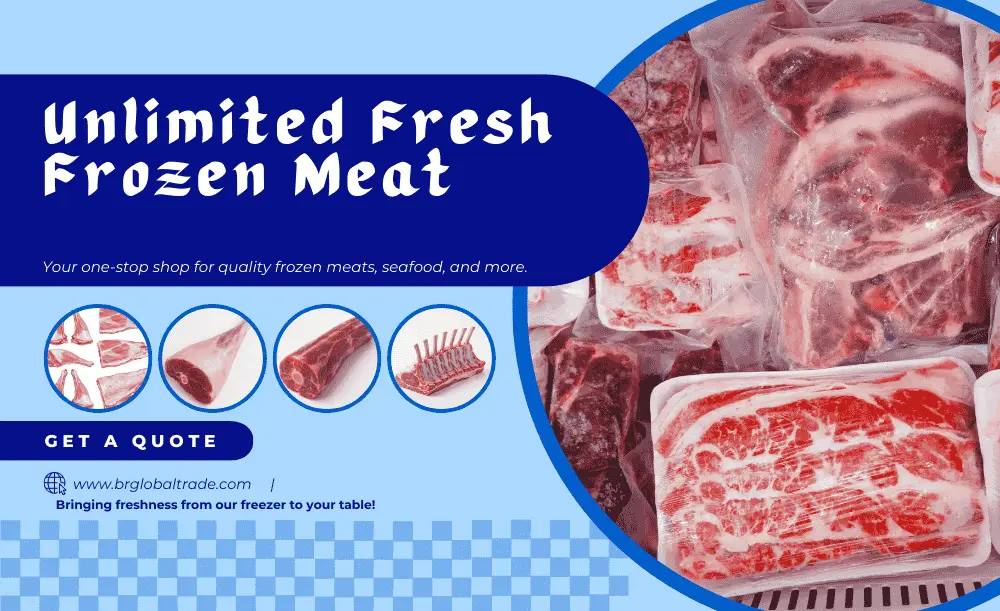
India has strengthened its status as a major, consistent global supplier of high-quality lamb meat. In fact, it has increased its sheep meat exports to the MENA that includes the Middle East and North Africa region.
The demand for high-quality, grass-fed lamb is expanding in countries such as the UAE, Qatar, Kuwait, Maldives and Bahrain. India’s mutton export and lamb trade is gaining significant traction as specified in the recent study that highlights how around 10,829 metric tonnes of high-value sheep and goat meat was exported in FY 2023-24, generating approximately USD 77.68 million. (Source: APEDA).
MENA regions are leading the demand for high quality lamb, fostered by traditional culinary use, demanding Halal requirements and changing behaviours of retailers and foodservice. The Indian exporter is naturally present along this supply chain, offering value based solutions such as vacuum-packed lamb and bulk frozen lamb meat to a demanding market.
Desert Demand: MENA’s Appetite for High-Quality Lamb
Lamb and mutton are essential in the Middle Eastern food culture, particularly specialties that use premium quality and Halal compliance. In 2024, the MENA region imported over 5,800 metric tonnes of lamb and sheep meat collectively valued at approximately USD42 million, and has maintained a stable CAGR of 4.6% since 2013. (Source: IndexBox).
Key consumption patterns that highlights the success of sheep meat export includes:
- Significantly strong preference for grass-fed lamb meat export and its accompanying perceived quality and health benefits,
- Demand for vacuum-packed lamb options to be applicable for both retail and foodservice,
- Desire for frozen lamb variants to withstand freshness during distribution channels,
Halal is compulsory due to the predominant Muslim population represented in the market.
These reasons only emphasize how Indian lamb exports are particularly pertinent to wholesalers and distributors servicing the developing market sectors in MENA.
India’s Niche: Serving Premium & Frozen Lamb Markets
The lamb export system in India has bolstered its premium lamb meat position through the use of modern processing technologies and adherence to rigorous certifications. Products such as vacuum-packed lamb or bulk frozen lamb are custom tailored to meet each importer’s specifications, including wishes from hoteliers, specialty butchers, or supermarket chains in MENA.
Notable industry players include:
- Offering chilled and frozen grass-fed lamb supplied through certified Halal systems to the GCC countries.
- Supplying frozen boneless and vacuum packed lamb and mutton.
- Utilizing technologically advanced cold chain management and internationally recognised certifications.
Success in both businesses represents the great opportunity of compliant and technologically advanced operations to obtain MENA’s premium market.
Logistics & Compliance: Ensuring Quality from Farm to GCC
India’s lamb exports to MENA are supported by state-of-the-art logistics:
- HACCP, ISO, and FSSAI certification means processing occurs in registered plants and the processing plants are recognized for hygiene and safety before any work is done.
- Flash freezing or blast freezing below -18C ensures lamb meets strict freshness and shelf life controls.
- Modern cold chain and reefer shipments are equipped with real-time temperature-monitoring technology to ensure frozen lamb is stored in perfect condition while in transit.
- Customs clearance and import compliance include Halal certification, health certificates, and proof of origin as part of detailed documentation which facilitates compliance.
March 2024 data from Volza confirms that India’s lamb exports to the GCC exceed competitors, and India leads all frozen lamb shipments to the UAE and Saudi Arabia in FY2024 (Source: Volza).
Strategic Edge: Competing with Australia and New Zealand
India’s success cannot be seen in isolation. Traditional exporters such as Australia and New Zealand have been leading exporters of lamb for many years, but with India’s:
- Cost competitiveness
- Customized Halal compliance
- Flexible supply chains, and export reliability has solidified its position especially in new and price constrained markets. Australia’s recent surge in India, capturing a 85% increase in imports in 2024 (Sheep Central), showcases the competitive environment but also underlines the expansive opportunity for Indian exporters globally.
Final Thought: Meeting MENA’s Growing Demand with Indian Lamb
India’s lamb export market is in a unique advantageous position, driven by premium-quality, grass-fed lamb and the newest in vacuum packed lamb innovations, to meet the growing demand for lamb in MENA regions. With compliance, frozen and chilled product solutions, and new supply chain models, Indian products and exporters are in a strong position in the regional lamb export market.
For buyers requiring quality, verification, and compliance, India’s lamb export market is ready to work with you, from pasture to plate within the Middle East.
Are you looking to take advantage of MENA’s growing demand for premium quality, grass-fed lamb? Reach out to BR Global Trade to be your compliant, reliable and scalable partner in supply of lamb.


